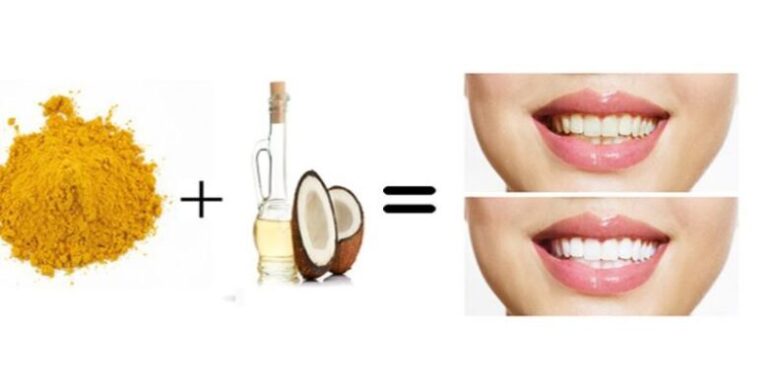Turmeric Teeth Whitening Facts

The quest for a radiant smile has led many to explore unconventional methods, including the use of turmeric for teeth whitening. This ancient spice, known for its vibrant yellow color and numerous health benefits, has been touted as a natural alternative to commercial teeth whitening products. But does turmeric really live up to its promises, and what are the facts behind its supposed teeth whitening properties?
To understand how turmeric might affect tooth color, it’s essential to examine its chemical composition. Turmeric contains a powerful compound called curcumin, which is responsible for its distinct color and many of its medicinal properties. Curcumin has been shown to have antioxidant, anti-inflammatory, and antibacterial effects, making it a popular ingredient in natural health remedies. However, its potential impact on teeth whitening is more complex and requires a closer look.
The Science Behind Turmeric Teeth Whitening
The idea that turmeric can whiten teeth is largely based on its alleged ability to remove stains and reduce plaque formation. Turmeric’s antibacterial properties might help combat the bacteria that contribute to tooth discoloration, and its anti-inflammatory properties could potentially reduce gum inflammation, which can also affect the appearance of teeth. However, there is limited scientific evidence to support the claim that turmeric can significantly whiten teeth.
One of the primary concerns with using turmeric for teeth whitening is its color. Turmeric is intensely yellow, which could potentially stain teeth rather than whiten them. This has led to a mixture of results, with some users reporting improved teeth color and others experiencing unwanted yellowing.
Turmeric Teeth Whitening Methods
Despite the lack of concrete evidence, many natural health enthusiasts swear by turmeric as a teeth whitening agent. Various methods have been proposed for using turmeric, including:
- Turmeric Powder: Mixing turmeric powder with water to create a paste that can be applied directly to the teeth.
- Turmeric Oil Pulling: Using turmeric oil for oil pulling, a practice that involves swishing oil around in the mouth to reduce bacteria and promote oral health.
- Turmeric and Salt: Combining turmeric with salt for a supposed synergistic effect that enhances teeth whitening and oral health benefits.
Each of these methods has its proponents, but it’s crucial to approach them with a critical perspective, recognizing that individual results can vary widely.
Potential Risks and Considerations
While turmeric is generally considered safe, there are potential risks and considerations to be aware of when using it for teeth whitening:
- Tooth Sensitivity: Some users might experience increased tooth sensitivity due to the abrasive nature of turmeric powder or the change in oral environment.
- Gum Irritation: The active compounds in turmeric could potentially irritate the gums, especially if used in high concentrations or without proper dilution.
- Staining: As mentioned, turmeric’s yellow pigment could stain teeth, especially if good oral hygiene practices are not followed.
Expert Insights
Experts in the field of dentistry and oral health are cautious about recommending turmeric for teeth whitening. While acknowledging its potential benefits for oral health, they emphasize the need for robust scientific evidence to support its effectiveness for teeth whitening. Dentists often recommend proven methods for teeth whitening, including professional bleaching treatments and the use of whitening toothpaste, as these have been extensively tested and validated.
Conclusion
The notion that turmeric can whiten teeth is an intriguing one, driven by the spice’s natural health benefits and the desire for alternative, non-invasive dental care practices. However, the current state of evidence suggests that turmeric’s role in teeth whitening is more nuanced and less straightforward than often claimed. As with any health or beauty treatment, it’s essential to approach turmeric teeth whitening with a balanced perspective, recognizing both its potential benefits and limitations.
For those considering turmeric for teeth whitening, it’s advisable to consult with a dental professional to discuss the most effective and safe options for achieving a brighter, healthier smile. Meanwhile, ongoing research may uncover more about the potential of turmeric and other natural compounds in oral health and teeth whitening.
Is turmeric safe for teeth whitening?
+Turmeric is generally considered safe, but its safety and effectiveness for teeth whitening are not extensively proven. Potential risks include tooth sensitivity and gum irritation.
How do I use turmeric for teeth whitening?
+Methods include mixing turmeric powder with water to create a paste, using turmeric oil for oil pulling, or combining turmeric with salt. However, the effectiveness of these methods varies, and individual results may differ.
Can turmeric stain teeth?
+Yes, turmeric's yellow pigment can potentially stain teeth, especially if not used correctly or if good oral hygiene practices are not followed.
In conclusion, while turmeric holds promise for various health benefits, its use for teeth whitening is a topic that requires further research and cautious consideration. As the pursuit of natural health solutions continues, it’s essential to prioritize evidence-based practices and consult with professionals to ensure the safest and most effective outcomes.

